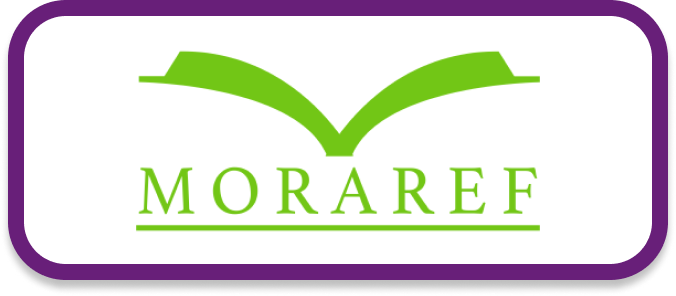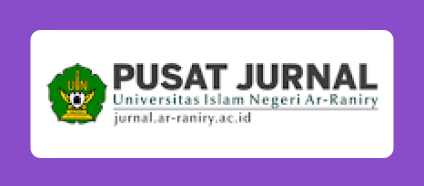MANAJEMEN PENGEMBANGAN BUDAYA ORGANISASI BERBASIS IHSAN DI MAS AL-HIKMAH TEBING TINGGI
Abstract
Madrasah Aliyah Private Tebing Tinggi is very unique with the development of its ihsan-based organizational culture, where the head of MAS Al-Hikmah Tebing Tinggi often communicates the vision and mission of the madrasa with the slogan of excellence and dignity. The values built by teachers and students are also displayed on a daily basis, starting from the cleanliness of the environment, carrying out the midday and asar prayers in congregation. So this is why the researchers chose the location at the Private Madrasah Aliyah Tebing Tinggi. Problem Formulation. How to develop an organizational culture based on Ihsan MAS Al-Hikmah Tebing Tinggi. What is the strategy for developing an organizational culture based on Ihsan MAS Al-Hikmah Tebing Tinggi. Place and time of research. This research was conducted at the Tebing Tinggi Private Madrasah Aliyah. Central Padanghulu District, Tebing Tinggi City. Research time is from 09 to 11 January 2022. Type of Research Research method is a way of doing something by using the mind carefully to achieve the objectives of the research. The method used by the author is a qualitative approach. Qualitative method is a method based on philosophy, postpositivism. Findings. The development of an Ihsan-Based Organizational Culture at MAS Al-Hikmah Tebing Tinggi is: The development of an organizational culture based on the Ihsan Aliyah Private Madrasah of Tebing Tinggi is developed and applied every day in learning and outside of learning, students continue to be fostered by teachers and senior students so that they are good in knowledge, attitudes and worship . Every Tuesday and Thursday morning students must line up in the field to listen to lectures. Ihsan-Based Organizational Culture Development Strategy at MAS Al-Hikmah Tebing Tinggi. Efforts made by school/madrasah principals in the early stages are preparing for cultural development in schools/madrasahs. In some cases in schools/madrasah the principal can use several steps. Based on an interview with the deputy head of the madrasa regarding the development of an ihsan-based organizational culture at the Madrasah Aliyah Swasta Tebing Tinggi, he explained as follows: The head of the madrasa conveyed the vision and mission of the madrasah.
Keywords
Full Text:
PDFReferences
Al Ghazali, A. H. 2003. Ihya’ Ulumiddin, terjemahan Ismail Yakub. Singapura: Pustaka Nasional.
Beekun, R.I. 2012. Character Centered Leadership: Muhammad (P) as an Ethical Role Model for Ceos. Journal of Management Development, 31(10): 1003-1020.
CholidNarbuko, MetodologiPenelitian, (Jakarta:Pt Bumi Aksara, 2015)
Departemen Agama RI, Undang-undang dan Peraturan Pemerintah RI tentang Pendidikan, Jakarta: Direktorat Jenderal Pendidikan Islam Departemen Agama RI, 2006
Daryanto & Mohammad Farid, Konsep Dasar Manajemen Pendidikan di Sekolah, Yogyakarta: Gava Media, 2013
Handayanto, dkk. 2014. Using Organizational Culture, Leadership and Personal Values to Improve Ihsan Behavior at Masyitoh Hospital. International Journal of Business and Management Invention, 3(8). ISSN (Online): 2319-8028, ISSN (Print): 2319-801X
Hasibuan, Malayu S.P. 2003. Manajemen: Dasar, Pengertian dan Masalah. Jakarta: Bumi Aksara.
Jamaluddin, D. 2013. Character Education in Islamic Perspective. International Journal of Scientific & Technology Research, 2(2). ISSN 2277-8616.
Lickona, T. 1991. Educating for Character: How Our School Can Teach Respect and Responsibility. New York, Toronto, London, Sydney, Aucland: Bantam books.
Moh Kasiran, Metode Penulisan Kualitatif-Kuantitatif, Malang: UniversitasNegeri Malik Ibrahim Press, 2010
Ndraha, T. 1997. Budaya Organisasi. Jakarta: PT Rineka Cipta.
Syatibi, I. & Octavia L, dkk. 2014. Pendidikan Karakter Berbasis Tradisi Pesantren. Jakarta: Rumah Kitab.
Sonhadji, A. 2003. Modul Bahan-Bahan Kuliah Manajemen Strategik. Universitas Negeri Malang.
Siagian, Sondang P., 2002. Kiat Meningkatkan Produktivitas Kerja. Jakarta: Rineka Cipta
Sugiono, Metode Penelitian Pendidikan, (Bandung: CV.Alfabeta, 2013
Sugiyono, Metode Penelitian Kuantitatif, Kualititafi, R&D Bandung: Penerbit Alfabrta, 2015
DOI: http://dx.doi.org/10.22373/pjp.v11i1.13090
Refbacks
- There are currently no refbacks.
Copyright (c) 2022 Muhammad Said Zulkarni Harahap

This work is licensed under a Creative Commons Attribution-ShareAlike 4.0 International License.

























